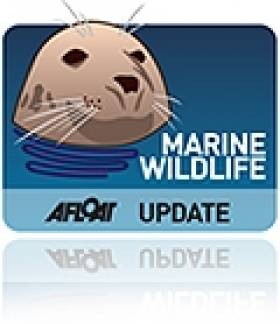Displaying items by tag: state of knowledge
Ireland's First Biodiversity Audit Launched
Ireland's first ever biodiversity audit has revealed that our mountains, woodlands and waterways are home to more than 31,000 different species of plants and animals. For all the latest news on Irish marine animals click here.
Ireland's waters boast more than 560 different species of marine fish, most of which are perch-like or ray finned fish, while 29 different fish species inhabit Irish inland waterways.
The state of knowledge report also found that popular species of plants, birds or mammals make up just one in ten of all species in Ireland.
Dr Liam Lysaght of the National Biodiversity Data Centre told the Irish Independent that the report "will for the first time allow us to accurately describe Ireland's biological resources and identify the knowledge gaps that exist".
http://www.independent.ie/national-news/irelands-wildlife-audit-revealed-2591440.htmlScientists joined with State bodies, NGOs and third-level institutions last August to conduct the survey of Ireland's plantlife and wildlife.
Minister for Arts, Heritage and Gaeltacht Affairs Jimmy Deenihan said that the protection of Ireland's biodiversity "is not a luxury".
The report is available online at biodiversity.biodiversityireland.ie
Ireland's first ever biodiversity audit has revealed that the country's mountains, woodlands and waterways are home to more than 31,000 different species of plants and animals.
The survey reveals that Ireland's waters boast more than 560 different species of marine fish, most of which are perch-like or ray finned fish, while 29 different fish species inhabit Irish inland waterways.
The state of knowledge report also found that popular species of plants, birds or mammals make up just one in ten of all species in Ireland.
Dr Liam Lysaght of the National Biodiversity Data Centre told the Irish Independent that the report "will for the first time allow us to accurately describe Ireland's biological resources and identify the knowledge gaps that exist".
Scientists joined with State bodies, NGOs and third-level institutions last August to conduct the survey of Ireland's plantlife and wildlife.
Minister for Arts, Heritage and Gaeltacht Affairs Jimmy Deenihan said that the protection of Ireland's biodiversity "is not a luxury".
The report is available online at biodiversity.biodiversityireland.ie
























































